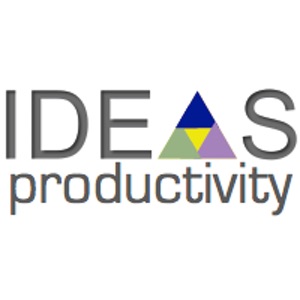 Scalability of scientific applications is a major focus of the Department of Energy’s Exascale Computing Project (ECP) and in that vein, a project known as IDEAS-ECP, or Interoperable Design of Extreme-scale Application Software, is also being scaled up to deliver insight on software development to the research community.
Scalability of scientific applications is a major focus of the Department of Energy’s Exascale Computing Project (ECP) and in that vein, a project known as IDEAS-ECP, or Interoperable Design of Extreme-scale Application Software, is also being scaled up to deliver insight on software development to the research community.
One channel is a series of webinars on best practices for HPC software developers which began in June. IDEAS-ECP members will also present a half-day tutorial on Better Scientific Software and host a birds-of-a-feather (BOF) session at the SC17 conference in November.
The next webinar on the “TAU Performance System” will be presented by Sameer Shende of the University of Oregon at 1 p.m. Wednesday, November 8 (Eastern). TAU is a powerful profiling and tracing toolkit that covers multiple aspects of performance instrumentation, measurement, and analysis. The webinar is free, but registration is required.
The IDEAS-ECP webinar series debuted with a talk on “Python in HPC” by Rollin Thomas of the National Energy Research Scientific Computing Center (NERSC), at Lawrence Berkeley National Laboratory (Berkeley Lab) in collaboration with William Scullin of Argonne National Laboratory and Matt Belhorn from Oak Ridge National Laboratory. More than 200 people registered for the event and 158 attended.
At the meeting of ECP principal investigators in January, we noticed from the presentations that a number of the projects use Python, but getting good performance out of Python on highly parallel machines is difficult so we chose that as the topic for our first webinar,” said Berkeley Lab’s Osni Marques, who is the IDEAS-ECP lead for developing webinar content. “Our ultimate goal is to provide strategies for improving productivity and the development of applications, libraries and software.”
The webinars and SC17 tutorial are part of the IDEAS-ECP Outreach effort led by David Bernholdt of Oak Ridge National Laboratory. Bernholdt said that the original IDEAS project grew out of longstanding recognition in the HPC science community that fostering better software development would lead to more productive and sustainable software.
When ECP was ramping up, people started talking about the need for improved practices as they would need to take a quantum leap to get their software and applications ready for exascale,” Bernholdt said. “So we persuaded them that IDEAS could be valuable for ECP, as well as have even broader impacts.”
Originally funded by DOE’s offices of Advanced Scientific Computing Research and Biological and Environmental Research, IDEAS launched a biweekly series of webinars in 2016, which was a demanding schedule. As part of ECP, the team rebooted the webinars to a more sustainable monthly schedule.
The webinars are announced via an 800-member mailing list and registration is required (and free). Each webinar is also archived for viewing by anyone.
Bernholdt said that the webinars are collaborative, like many of DOE’s research projects. In the case of the session on Python, the three participating labs each handles Python a bit differently and there are many nuances. By being aware of this, attendees will be better informed if they run into a snag.
The team peruses the literature and speaks with researchers are meetings to glean topics of interest for the sessions.
The tutorials are also evolving to meet the needs of researchers. The SC17 tutorial, to be led by Bernholdt, Anshu Dubey of Argonne National Laboratory and Michael A. Heroux and Alicia Klinvex of Sandia National Laboratories, is an evolved version of a tutorial given at the February 2017 SIAM Conference on Computational Science and Engineering. A version of it will also be presented at the PRACE (Partnership for Advanced Computing in Europe) IT4Innovations meeting Oct. 4-5 in Prague.
Bernholdt said the project fills an important niche as software development for both science and HPC are in a different context from mainstream computing and IDEAS tailors its information to the scientific HPC community.
The overall IDEAS-ECP project is led by Mike Heroux of Sandia National Laboratories and Lois Curfman McInnes of Argonne. Ashley Barker of the Oak Ridge Leadership Computing Center is the ECP manager for the project.
To receive announcements of future IDEAS-ECP events, please subscribe to the IDEAS mailing list. The work was funded through the Department of Energy’s Exascale Computing Project through the Office of Advanced Scientific Computing Research in the DOE Office of Science.



